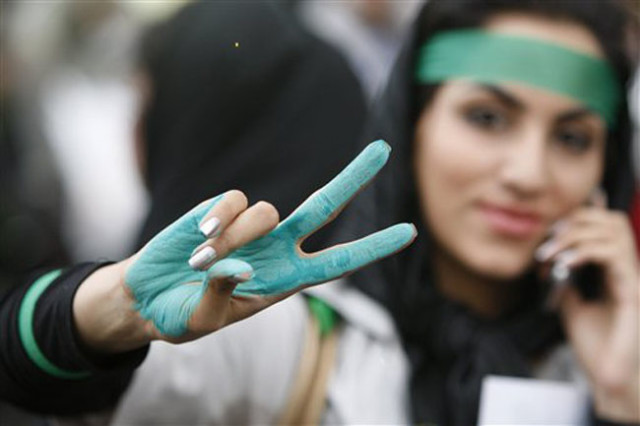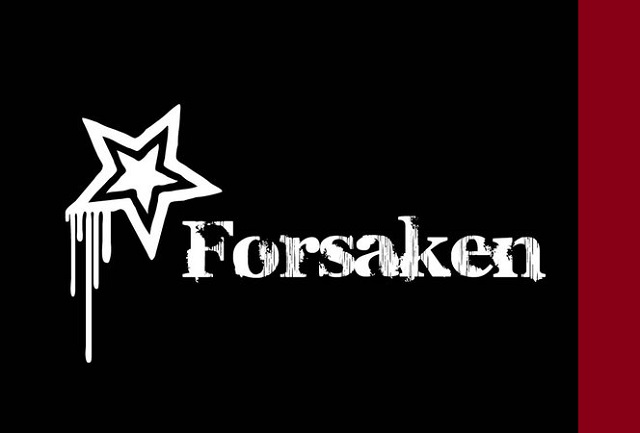The ballistic missile with Obama’s name on it, paraded in the streets of Moscow last Monday, was only an imitation – but the sentiment was genuine.
Looking like a gigantic allegorical suppository for the American president, the green twelve-foot rocket emblazoned with the hammer and sickle over a red star brought up Cold War memories of real intercontinental missiles the Soviet government would parade in Red Square as a vague threat to its enemies. There was no vagueness this time: in large print letters, the message on the rocket said, “To be delivered to Obama in person.”

The occasion was the Day of the Defenders of the Motherland – a big annual celebration of the creation of the Red Army in 1918 by Leon Trotsky. To be sure, Trotsky’s name had not been attached to this holiday ever since his removal from power and assassination by Stalin. Additionally, the country has since changed its name, borders, ideology, the system of government, and renamed the very holiday in question.
Still, the holiday spirit runs strong, along with patriotic rallies, propaganda posters, and nationally televised bombastic military-themed concerts puffed up by a full roster of Kremlin-approved celebrities.
It’s also dubbed Men’s Day, as all Russian men and boys receive greetings and gifts from women and girls – a rather manipulative hetero-normative reminder that all male citizens belong in the army.
 In a way, this mirrors Women’s Day on March 8th – another originally communist holiday that comes twelve days later, when women and girls receive greetings and gifts from men and boys, as men volunteer to help around the house and do women’s work in the kitchen – which may also be seen as a hetero-normative reminder of a woman’s place on all other days of the year.
In a way, this mirrors Women’s Day on March 8th – another originally communist holiday that comes twelve days later, when women and girls receive greetings and gifts from men and boys, as men volunteer to help around the house and do women’s work in the kitchen – which may also be seen as a hetero-normative reminder of a woman’s place on all other days of the year.
This year Ukraine officially canceled the celebration of Russia’s military holiday, belatedly joining other ex-Soviet republics that had suffered the wrath of the Red Army. In contrast, Vladimir Putin’s government has boosted the celebration even further, making February 23rd an official day off and using it to crank up the already excessive Russian patriotism.
With full support of the government-controlled media, national chauvinism is now spilling over the state borders, as gangs of armed “patriots” flock to eastern Ukraine, eager to show the uppity ukrops their place in Pax Russiana. Jingoism dominates Russia’s online forums and social media, as well as the streets and city squares, with rallies that support Putin, military adventurism, and Pax Russiana, while at the same time trashing everything non-Russian, especially America and Gayrope (a new Russian slur deriving from “gay” + “Europe.”) The stunt with the Obama-targeted missile is merely a small piece in the world’s largest jigsaw puzzle called Russia.
According to the Levada Center, a Moscow-based independent polling organization, America is seen negatively today by 74% of the Russian population (60% also have a negative view of Europe), and 69% believe the United States is a hostile nation. At the same time, after the break-up of the USSR in the early 1990s, only 10% of Russians viewed the U.S. negatively. What happened?
The Levada Center has registered four waves of anti-American and anti-Western sentiment in Russia – in 1999 (the war in Serbia), in 2003 (the war in Iraq), in 2008 (the war in Georgia), and in 2014 (the war in Ukraine), with today’s wave being the strongest in the last 20 years. Sociologists also believe that Russia’s public opinion is shaped largely by the government-run media, with more than one half of the respondents admitting they couldn’t form opinions independently.
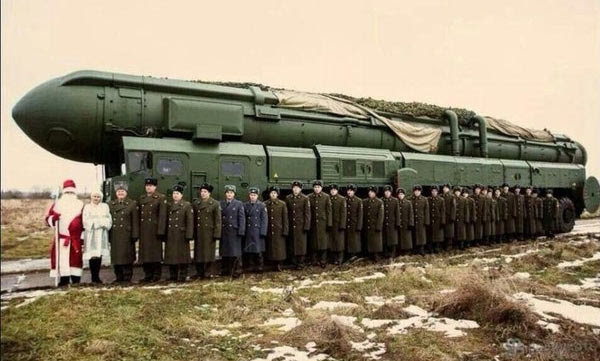
It would be fair to say that every such wave of anti-Americanism in Russia (and to some extent around the world) has been orchestrated and paid for by the Kremlin’s powerful propaganda machine, which deploys two parallel narratives – one for the foreigners and one for domestic use. The domestic narrative is always a variation of the same formula: “Once again, the Motherland is under attack from American imperialism. The West has always hated Russia. Out of sheer hatred they want to humiliate us and push Russia out of its traditional spheres of influence. To survive, our nation must unite around a strong leader and his party.” The leader is, of course, Vladimir Putin; the party is United Russia.
During the first wave of post-Soviet xenophobia and anti-Americanism in December of 1999, Putin conveniently upgraded his position from Russian prime minister to Russian president. It is hardly a coincidence that now, during the fourth and strongest anti-American wave, Putin’s approval rating has risen to an astronomical 86%. The survey was taken on February 23rd, the same day the Russia-to-Obama rocket was spotted in the streets of Moscow.
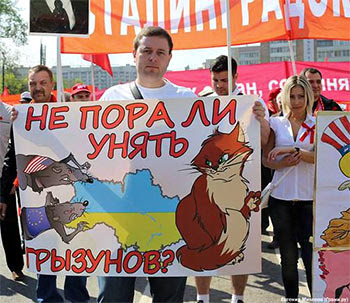
A sign at a pro-Putin rally in Moscow showing America and Europe as two rats biting at Ukraine, and Russia as a cute red squirrel. The caption says, “Time for rodent control?”
This only means that about the same number of Russians also share a paranoid obsession with Ukraine, honestly believing that Vladimir Putin is fighting an epic and noble battle against the American aggression launched by the CIA through its Ukrainian proxies.
A similar narrative existed during Russia’s invasion into Georgia in 2008, when the Russian media referred to the Georgian president Saakashvili as America’s puppet.
In the days of the Maidan protests in Kiev last year, a number of protesters had been taken away and beaten by national security, which at the time was largely run by Russia’s FSB. Between the beatings, the interrogators demanded a “volunteer confession” that the protests had been organized by American agents and paid for in dollars. No such “confessions” had been obtained.
From the start of the armed conflict in eastern Ukraine, the Russian media cooperated with the Russian intelligence in trying to find evidence of American presence in the war zone. All they have found was a broken foreign-made rifle, a damaged Hummer vehicle, and a two-second video footage of a British anti-land-mine activist in Mariupol, whom the Russian media described as an American cutthroat mercenary.
In the absence of facts, fakes will do. The government media, with the assistance of an army of paid online activists have launched a slew of rumors, conspiracy theories, and internet fakes – for example, presenting footage from Iraq as coming from Ukraine, or publishing wild-eyed “eyewitness accounts,” the latest of which included an apocalyptic story of drunken American Negroes dancing on top of Ukrainian tanks while pointing guns at terrified civilians. A separatist warlord once posted a “humorous” story online about how one dark night he saw an “American Negro” jumping out of a burning Ukrainian tank and immediately taking off his clothes, hoping that his black skin would help him to blend with the night.
Barack Obama receives a similar race-baiting treatment, with many online cartoons and posters mocking his race and portraying him as a monkey. On Obama’s birthday last year some “patriotic” Muscovites unveiled a large street banner picturing the U.S. President as “three wise monkeys.” Later that evening, the wall of the U.S. embassy in Moscow became a screen for a crude animated laser show picturing Obama eating a banana.

In this context, a missile for Obama in the middle of a patriotic rally hardly raised any eyebrows. A bigger problem is the fact that this agitprop rocket was conceived and signed by a Valery Rashkin (pronounced as “Rushkin”), a notoriously belligerent member of the Russian parliament and the leader of the Moscow branch of the Communist Party. The picture shows him proudly pumping his fist in front of his art project. Putin’s policies to restore the USSR obviously make this communist leader a happy camper.
A week earlier Rashkin fell under a new round of EU sanctions for promoting war in Ukraine, along with nineteen individuals and nine organizations whose assets held in EU countries have now been frozen, accompanied by an EU-wide travel ban. In total, Brussels has already sanctioned 151 individuals and 37 companies in Russia and eastern Ukraine.
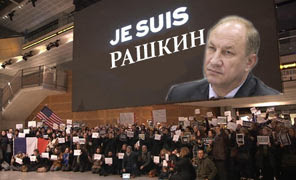 The new blacklist caused an overwrought reaction in the Duma, which quickly became the subject of ridicule in social media. The indignant head of the education commission Nikonov (United Russia) took the floor to defend his communist colleague by saying, “If they (in Europe) are all Charlie, then we are all… Rashkin!”
The new blacklist caused an overwrought reaction in the Duma, which quickly became the subject of ridicule in social media. The indignant head of the education commission Nikonov (United Russia) took the floor to defend his communist colleague by saying, “If they (in Europe) are all Charlie, then we are all… Rashkin!”
The following day, the Russian-speaking Internet was filled with “Je suis Rashkin” Internet memes, Tweets, and spoofs.
Rashkin himself responded to the sanctions by saying that in WWII his father entered Berlin without any sanctions and he was hoping that history would sort it out like it did in 1945. Standing next to his rocket, the leader of Moscow communists explained his stunt as follows: “Someone today is conspiring against my Motherland. I am the son of my father, I wanted to send a present. This present doesn’t abide by any sanctions either. It will fly wherever the Motherland wishes it to fly.”
A crowd of communists, several thousand strong, carried red flags, portraits of Soviet leaders, and the Obama-designated rocket through Moscow streets to Revolution Square, where they held a planned rally with Rashkin as a speaker. “The United States is causing destruction, violence, and bloodshed all over the world. We must stop these rapists and murderers, we must fight to defend the sovereignty of our great nation,” said the member of the Russian parliament and head of the commission on ethnic policies.
The next speaker was Gennady Zyuganov, head of Russia’s Communist Party, claiming that the West doesn’t want Russia to be strong and powerful and that they only “need our resources, our talent, and our land. That is why they have imposed their sanctions and continue to choke us any way they can. That is why they have unleashed the bloody war in Ukraine, directed by the CIA, unscrupulous diplomats, outright Nazis, Banderites, and corrupt oligarchs.”
Leader of Russia’s communists Gennady Zyuganov is not only a long-serving member of the Russian parliament (since 1993), but he is also a member of the Parliamentary Assembly of the Council of Europe (since 1996). Additionally, in 1996, 2000, 2008, and 2012 he was a candidate in Russian presidential elections and came in second every time. Zyuganov and Rashkin exemplify the pre-approved pool of candidates in Putin’s Russia circa 2015.
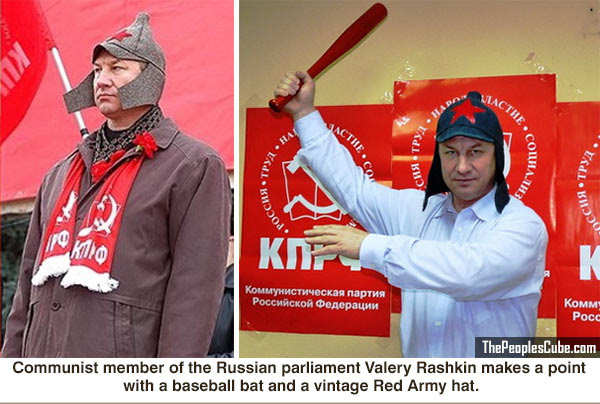
To be fair, the Kremlin’s political technologists are hard at work trying to misrepresent the reality of Russia’s pool of candidates by manufacturing and promoting political opposition which it can control, while marginalizing the independents. As a result, the only “viable” opposition leaders in Russia are the Soviet-style communist Zyuganov (4% of the vote) and the psychotic nationalist Zhirinovsky (5% of the vote). Both are grotesque scarecrows; compared to them Putin looks like a knight in shining armor to most Russians and appears a lesser of two evils in the eyes of the West.
After the fall of the USSR Russia had a real chance to develop a civil society, modernize its economy, and join the family of Western nations as an equal. Instead, as many independent Russian analysts believe, Vladimir Putin has squandered that chance, choosing to control the population by cultivating fear and hostility towards the outside world as a means to shift the blame for Russia’s continued problems and to divert attention from his and his circle’s abuse of power.
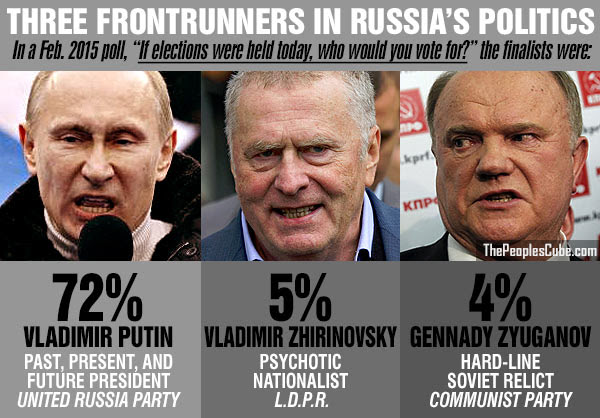
If a president’s goal is to become a national hero but he can’t do it by improving his country, Plan B is to create the appearance of heroics by means of media manipulations and byzantine political technologies. The latter worked for Putin: according to a survey conducted early February by Public Opinion Foundation, 72% of Russians would have voted for Putin today, with only 5% distrusting their president. The annexation of the Crimea only added to his popularity. Analysts believe the current crisis may actually be a boon for Putin, as the average Russian is likely thinking, “If he could pull off getting us the Crimea, he’ll find a way out of this crisis as well.”
On the international arena, Plan B means dragging the rest of the world down to his level by sabotaging other economies and stirring political turmoil abroad, making Russia look stable and prosperous in comparison.
 By choosing Plan B, Putin has pushed the Russian society thousands of years back, into the age of mythology with its hierarchy of gods, heroes, and monsters. In compliance with the state-approved zeitgeist, Russia’s cultural elites are filling the post-communist void in their souls with ancient Slavic mythology and “Aryan” pseudoscience, submerging into the depths of imaginary history, resurrecting forgotten words, notions, and meanings, and defining Russia as the Third Rome.
By choosing Plan B, Putin has pushed the Russian society thousands of years back, into the age of mythology with its hierarchy of gods, heroes, and monsters. In compliance with the state-approved zeitgeist, Russia’s cultural elites are filling the post-communist void in their souls with ancient Slavic mythology and “Aryan” pseudoscience, submerging into the depths of imaginary history, resurrecting forgotten words, notions, and meanings, and defining Russia as the Third Rome.
In other words, they are doing pretty much everything the cultural elites in Hitler’s Germany did when they tried to resurrect the pre-Christian Aryan mythology and lifestyle, defining themselves as the Third Empire, better known to us as the Third Reich.
The parallels in cultural attitudes are striking – and yet, in the mythological hierarchy of today’s “Third Rome,” the Third Reich was populated by monsters. According to the same mythology, the monsters have now reappeared in Ukraine, and Pax Russiana is once again standing up to the noble task of stomping them out. As a bonus, this view allows the participants to re-enact the mythologized heroics of the Great Patriotic War, better known to us as WWII. The circus pleases the plebs, and lowering vodka prices also helps.
A decade of mind-boggling oil revenues may have made Putin look like an invincible superhero, but easy petrodollars have also bloated his ego and made him detached from reality. The rest of the nation simply jumped on the presidential bandwagon. Now that the oil prices have dropped by half, Russia is back to square one: a poor and paranoid outcast, with crumbling currency, junk credit rating, and residual delusions of grandeur.
Superhero Putin is now asking his citizens to “sit tight for a couple of years, it’ll get better,” while his sidekick, prime minister Medvedev, threatens the world with a terrible “boom” and “ka-pow.” The sidekick’s sidekick, deputy prime minister Shuvalov, follows suit by declaring that for Putin’s sake Russians will be happy to eat less and live in the dark.
Quite fittingly, Putin has begun to exchange regular friendly messages with Kim Jong Un. North Korea’s dictator is expected to visit Moscow on May 9th to attend the Victory Day military parade in honor of the 70th anniversary of the Soviet victory in the Great Patriotic War. Both must be looking forward to comparing notes on how to maintain a long and productive career as an international outcast. The Russian media is already producing stories claiming that life in North Korea is not as bad as Western imperialists would want us to believe. Whether Russia is ready for the Ten Principles of Juche remains to be seen, but latest opinion polls indicate that Russia’s positive view of the authoritarian China has grown as high as 77%.
According to a running joke among his critics, Putin has turned Russia into a Burkina Faso with nuclear rockets. And if you’re a member of the Russian parliament, you can even have a personal rocket, or at least a cargo-cult imitation thereof, or perhaps a rocket-shaped voodoo doll, on which you can write the name of your true enemy: Barack Obama.

EDITORS NOTE: This column was first published in FrontPage Magazine, now with added illustrations. The featured photo is courtesy of the Communist Party of the Russian Federation – KPRF.ru
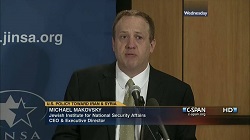 Michael Makovsky, executive director of the Jewish Institute for National Security Affairs (JINSA) in the current edition of The Weekly Standard dissected the reality of those ‘robust intrusive inspections’ under Additional Protocols between Iran and the IAEA in an article, “Iran’s Cheating: Can’t Trust, Can’t Verify”. First off, Makovsky notes there is “no Additional Protocol”:
Michael Makovsky, executive director of the Jewish Institute for National Security Affairs (JINSA) in the current edition of The Weekly Standard dissected the reality of those ‘robust intrusive inspections’ under Additional Protocols between Iran and the IAEA in an article, “Iran’s Cheating: Can’t Trust, Can’t Verify”. First off, Makovsky notes there is “no Additional Protocol”:



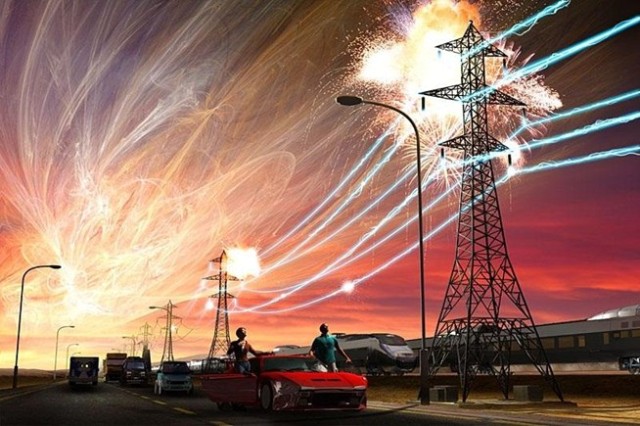
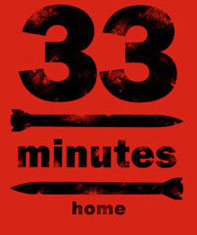
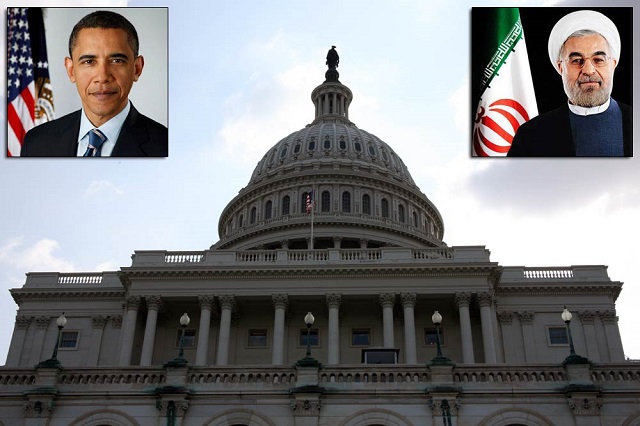
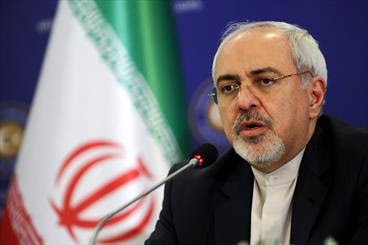
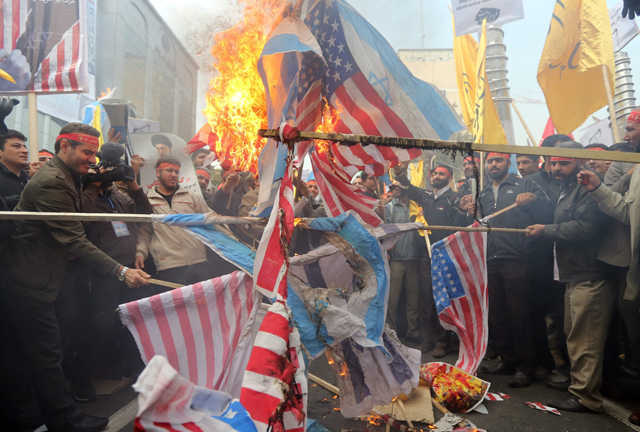

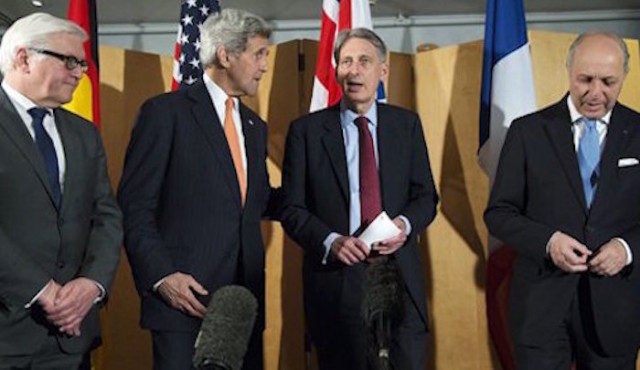
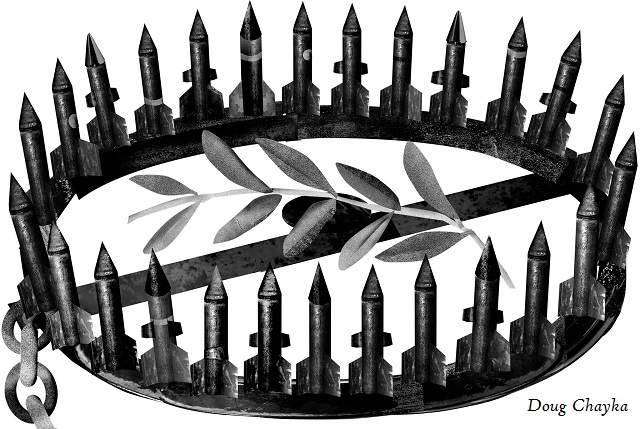
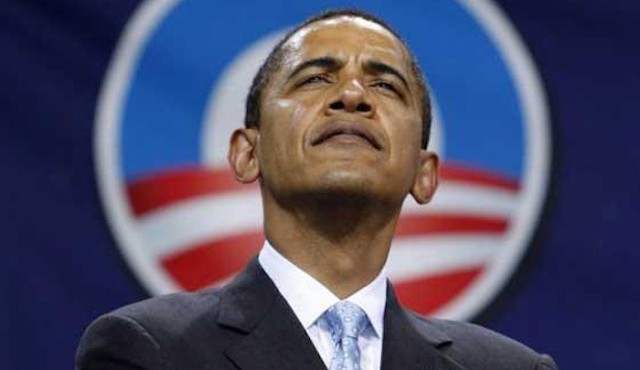
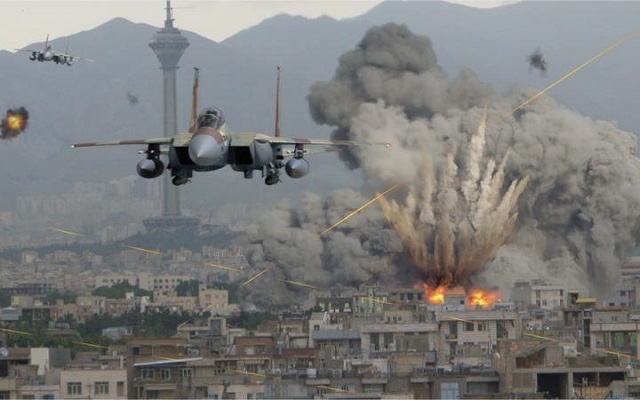


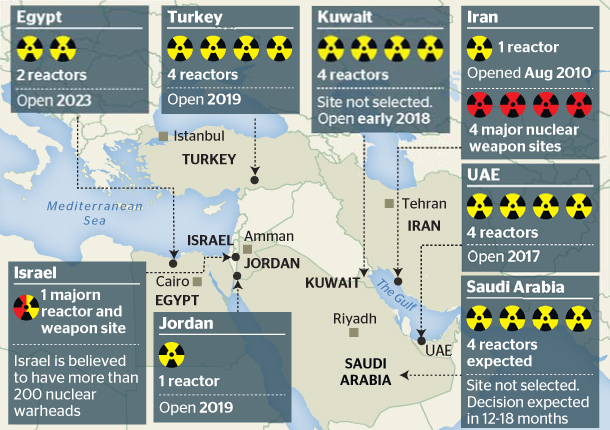
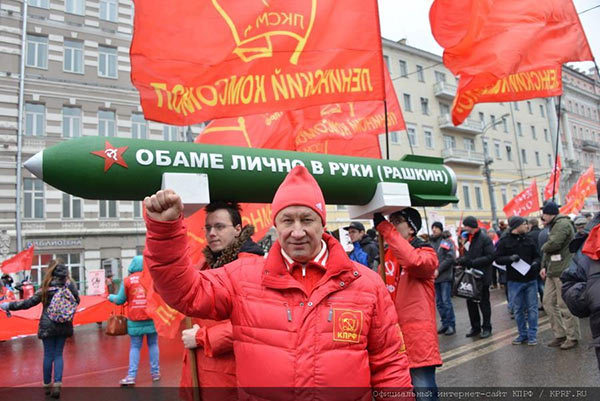





 The new blacklist caused an overwrought reaction in the Duma, which quickly became the subject of ridicule in social media. The indignant head of the education commission Nikonov (United Russia) took the floor to defend his communist colleague by saying, “If they (in Europe) are all Charlie, then we are all… Rashkin!”
The new blacklist caused an overwrought reaction in the Duma, which quickly became the subject of ridicule in social media. The indignant head of the education commission Nikonov (United Russia) took the floor to defend his communist colleague by saying, “If they (in Europe) are all Charlie, then we are all… Rashkin!”

 By choosing Plan B, Putin has pushed the Russian society thousands of years back, into the age of mythology with its hierarchy of gods, heroes, and monsters. In compliance with the state-approved zeitgeist, Russia’s cultural elites are filling the post-communist void in their souls with ancient Slavic mythology and “Aryan” pseudoscience, submerging into the depths of imaginary history, resurrecting forgotten words, notions, and meanings, and defining Russia as the Third Rome.
By choosing Plan B, Putin has pushed the Russian society thousands of years back, into the age of mythology with its hierarchy of gods, heroes, and monsters. In compliance with the state-approved zeitgeist, Russia’s cultural elites are filling the post-communist void in their souls with ancient Slavic mythology and “Aryan” pseudoscience, submerging into the depths of imaginary history, resurrecting forgotten words, notions, and meanings, and defining Russia as the Third Rome.
